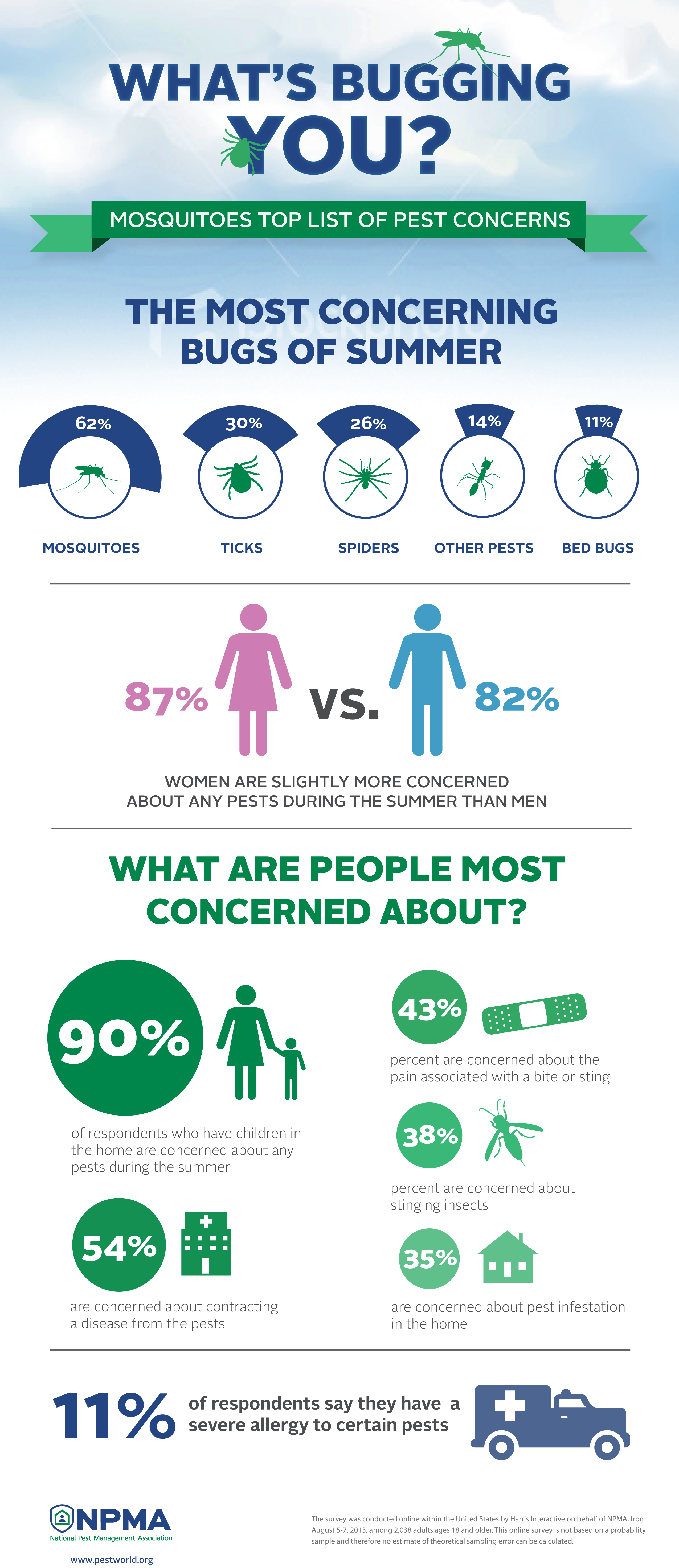Prepare Yourself To Boost Your Yard Right Into A Place Devoid Of Parasites And Pests With These Innovative Suggestions And Methods
Prepare Yourself To Boost Your Yard Right Into A Place Devoid Of Parasites And Pests With These Innovative Suggestions And Methods
Blog Article
Write-Up Writer-Vang Espersen
Envision your garden as a refuge, an area of tranquility and elegance. However, the presence of outdoor pests can quickly interrupt this picturesque image. What if there were basic yet efficient ways to keep these unwanted site visitors away and safeguard your yard oasis? By adhering to a couple of useful tips and executing natural approaches, you can create a harmonious exterior room where your plants can thrive undisturbed.
Natural Parasite Deterrents
To maintain parasites away from your garden naturally, plant fragrant herbs like mint and lavender. These aromatic plants not only add appeal to your yard but also work as reliable insect deterrents. Pests like insects, flies, and also some garden-damaging insects are driven away by the strong scents discharged by these natural herbs. Just placing them tactically around your yard can help produce a natural obstacle against unwanted pests.
In addition to mint and lavender, think about growing other herbs like rosemary, basil, and lemongrass to further improve your garden's pest-proofing abilities. These herbs not only function as all-natural repellents yet likewise have the added benefit of working in food preparation or crafting self-made remedies.
Strategic Plant Positioning
Consider the layout of your yard and the sorts of plants you need to strategically put them for optimum pest-proofing performance.
Beginning by grouping plants with comparable resistance to insects together. By doing this, you can develop an all-natural barrier that deters parasites from spreading throughout your yard.
Furthermore, putting pest-repelling plants like marigolds, lavender, or mint near more prone plants can assist secure them. Read Significantly more , such as sunflowers or corn, can act as a guard for shorter plants versus pests like rabbits or ground-dwelling pests.
Keep in mind to leave sufficient space between plants to improve air circulation and lower the danger of diseases that pests might carry.
Moreover, think about growing strong-smelling herbs like rosemary or basil near vulnerable plants to confuse bugs' detects and make it harder for them to locate their targets.
Reliable Bug Control Methods
For combating garden insects properly, executing a multi-faceted insect control technique is crucial. Begin by encouraging natural predators like birds, ladybugs, and praying mantises to aid keep parasite populations in check. Presenting plants that draw in these advantageous bugs can help in bug control. In addition, practicing good yard health by getting rid of debris and weeds where parasites could hide can make your garden less welcoming to undesirable visitors.
Take into consideration using physical obstacles such as row cover textiles or netting to safeguard susceptible plants from insects like caterpillars and birds. Applying natural pesticides like neem oil or insecticidal soap can likewise work versus certain pests while being less harmful to useful pests and the setting. It's crucial to revolve your crops each period to prevent the build-up of insect populations that target certain plants.
Regularly examine sos lawn and pest control for indications of insect damages so you can take action promptly. By incorporating these techniques and staying attentive, you can effectively manage yard insects and enjoy a thriving, pest-free garden.
Conclusion
So, there you have it - with the ideal approaches, you can maintain pesky outdoor parasites away from your yard and help your plants grow.
Did you know that planting mint has been shown to ward off mosquitoes and other insects, decreasing the requirement for hazardous chemicals by up to 60%?
By including natural deterrents and wise planting techniques, you can produce an attractive and pest-resistant garden sanctuary for you to enjoy.
